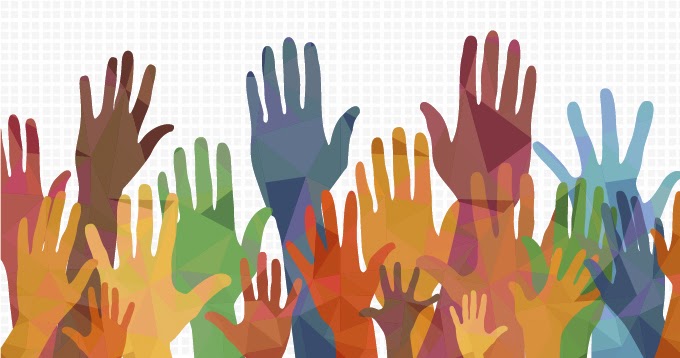Recommended for those seeking to learn the fundamentals of Mediation practice
The Basic Mediation training workshop has two major segments – Theory and Practice. It is a 4-day training workshop. It is recommended for persons seeking to learn the fundamentals of Mediation practice. Participants will be taught concepts and practice through presentations, small group discussion, large group discussions and simulated role-play.
*Pre-Requisite – Basic Mediation Training
The Advanced Program is a 3-day training workshop recommended for Certificate-Holders of Mediation Africa’s Basic Mediation Training Program and for holders of certificates from recognized training institutions. It is divided into two major segments – Theory and Practice. This program is recommended for persons seeking to begin their mediation practice within specialized communities of practice.
The Advanced Level Training Program is designed to cement and augment learnings from the Basic Training. It will expose participants to broader concepts in Mediation Practice, and focus on practicums. At the completion of the training, participants will acquire mediation practice tools to assist with enhancing expertise and competencies, and understand the importance of adherence to ethical practice guidelines in order to meet disputant needs and interests.
Post-Certificate Professional Development Training
Our Programs are Designed to Enhance Awareness of the Impact of Culture in Conflict Sources and Conflict Resolution for Applicants Who Have Expertise in ADR Practice.
The diversity of cultures in today’s world means ADR service-providers and other professionals have to work within unfamiliar cultural contexts. Inter-cultural competence ensures fairness in practice, inclusivity, builds cultural bridges for peaceful co-existence, enhances customer service practices and reduces risk exposure to costly conflict in all environments. Our Inter-Cultural Competence Workshop seeks to examine, present and discuss topics related to the importance of cultural considerations in conflict sourcing and conflict resolution.
Benefits of the Post-Certificate Professional Development Training:
Reduction in misunderstandings brought on by differences in culture and meaning-making in communication and in costly risk exposure for government, non-governmental organizations, and corporate businesses with multinational workforces.
Learnings from the post-certificate program will strengthen skills, knowledge and expertise for practitioners in societies and environments with culturally and ethnically-diverse members.
Who Will Benefit From This Training:
Professionals in Managerial Positions
Social Workers and Relationship Managers
Families: Spousal, Intergenerational-Parents and Children, Sibling Rivalry
Community Policing Professionals
Legal and Court Services Professionals
Health Services Professionals – Physicians, Nurses, Patient Administrators
Office Managers and Staff Supervisors
Human Resources Professionals
Child Care, Elder Care Professionals
We’ll work with you to design and deliver a presentation that fits your needs on any of the topics below:
The Role and Impact of Culture in Conflict Sourcing and Conflict Resolution
Gender in Conflict and Conflict Resolution
Race, Culture and Human Rights Conflict
Cultural Considerations In Family Conflict ResolutioN
Integrating Race, Social Culture and Meaning-Making in Dispute Resolution Within Multicultural Societies
About Our Training Programs
Objective
To build conflict resolution leadership capacity for Individuals, Community Organizations, National, Regional, Local Institutions and Agencies, Boards, and Commissions to support conflict risk management within organizational and social cultural contexts.
At the completion of training, participants will have demonstrated understanding of dispute resolution processes and acquired skills necessary to perform as mediation practice interns with opportunity to observe, co-mediations, and supervised mediations towards accreditation.
Design
Our training workshops are designed to qualify participants to facilitate mediations as sole practitioners with the ability to work as collaborating mediators. The design considers and incorporates socio-cultural and economic characteristics of a society, its institutions and peoples. In addition, the design captures the important traditional factors that contribute to the causes of conflict as well as the value-based preventive and curative approaches necessary for the promotion of environments that encourage a reduction in conflict.
Certification
Our training programs award Pre-Internship Certificates for completion of the Basic and Advanced Mediation training. After completion of 100 hours internship program, participants will qualify for accreditation and to register for the post-qualification specialized professional development training.
Focus
The training will focus on mediation skills and techniques designed to enhance participant understanding of mediation and ADR in multiple contexts between individuals and groups in any social setting such as community, business, employment, family, educational and religious institutions.
Our programs target conflict prevention, reduction and elimination in environments where challenges in communication and meaning-making present as risk factors and within which cultural traditions and belief systems clash to give rise to conflict.
Method
We use power point presentations, case studies, small group discussions, role-play exercises, coaching and other interactive methods to explore the subject matters of conflict identification, assessment, analysis and resolution approaches and processes using cultural context mediation:
PRESENTATIONS on the theory and practice of mediation.
CASE STUDIES simulations of case scenarios for discussion purposes.
DISCUSSIONS analyzing and matching cultural differences and meaning-making in communication – making sense of the causes and escalators of conflict and boundaries imposed by culture.
ROLE-PLAY using case scenarios to simulate mediation practice – participants will conduct mediations and practice dispute resolution skills and techniques to move parties from dispute to enduring, amicable settlement. Mediating in the context of the dispute and focusing on norms and taboos that block enduring settlements
EXPERT COACHING Experts drawn from the field of ADR will coach participant role-play during the training
READING MATERIALS Sourced from Academic Literature and other Reference Materials on Conflict and Non-normative Conflict Resolution practices
